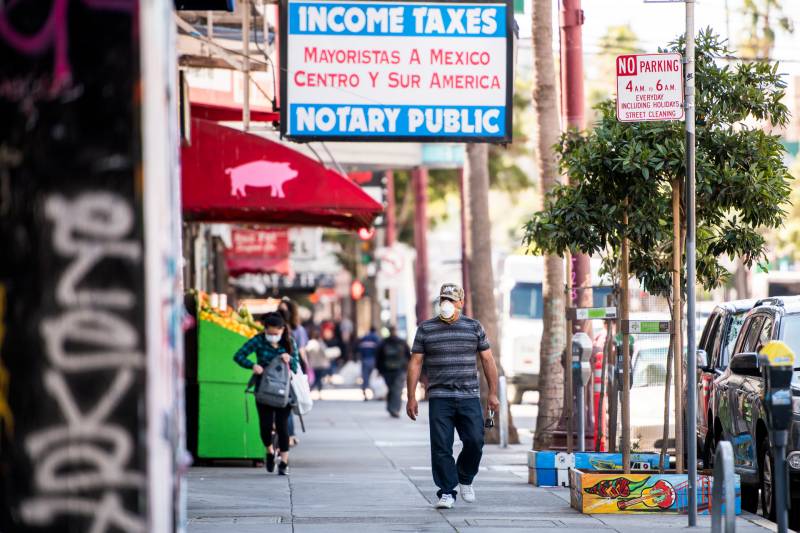As San Francisco’s Latino population suffers a growing toll from COVID-19, the city plans to begin offering more than $1,200 in aid to residents unable to afford to self-isolate after testing positive, according to the mayor’s office.
The "Right to Recover" program would channel private donations to supply two weeks of minimum wage to San Franciscans who, due to immigration status or other reasons, lack access to benefits such as unemployment insurance or paid sick leave while they are asked to recover at home.
“When someone tests positive for COVID-19, we want them to be able to focus on getting the care they need and taking the necessary steps to slow the spread of the virus, not worrying about how they’ll pay their bills,” said Mayor London Breed in a statement.
City officials expect the program to be up and running in a few weeks. They aim to help more than 1,300 working San Franciscans with a $2 million initial contribution from the Give2SF COVID-19 Response and Recovery Fund.
San Francisco was among the first U.S. cities to implement aggressive measures to curb the spread of the novel coronavirus, but the rate of infections in the city disproportionately affects low-income and minority communities, say public health experts.
